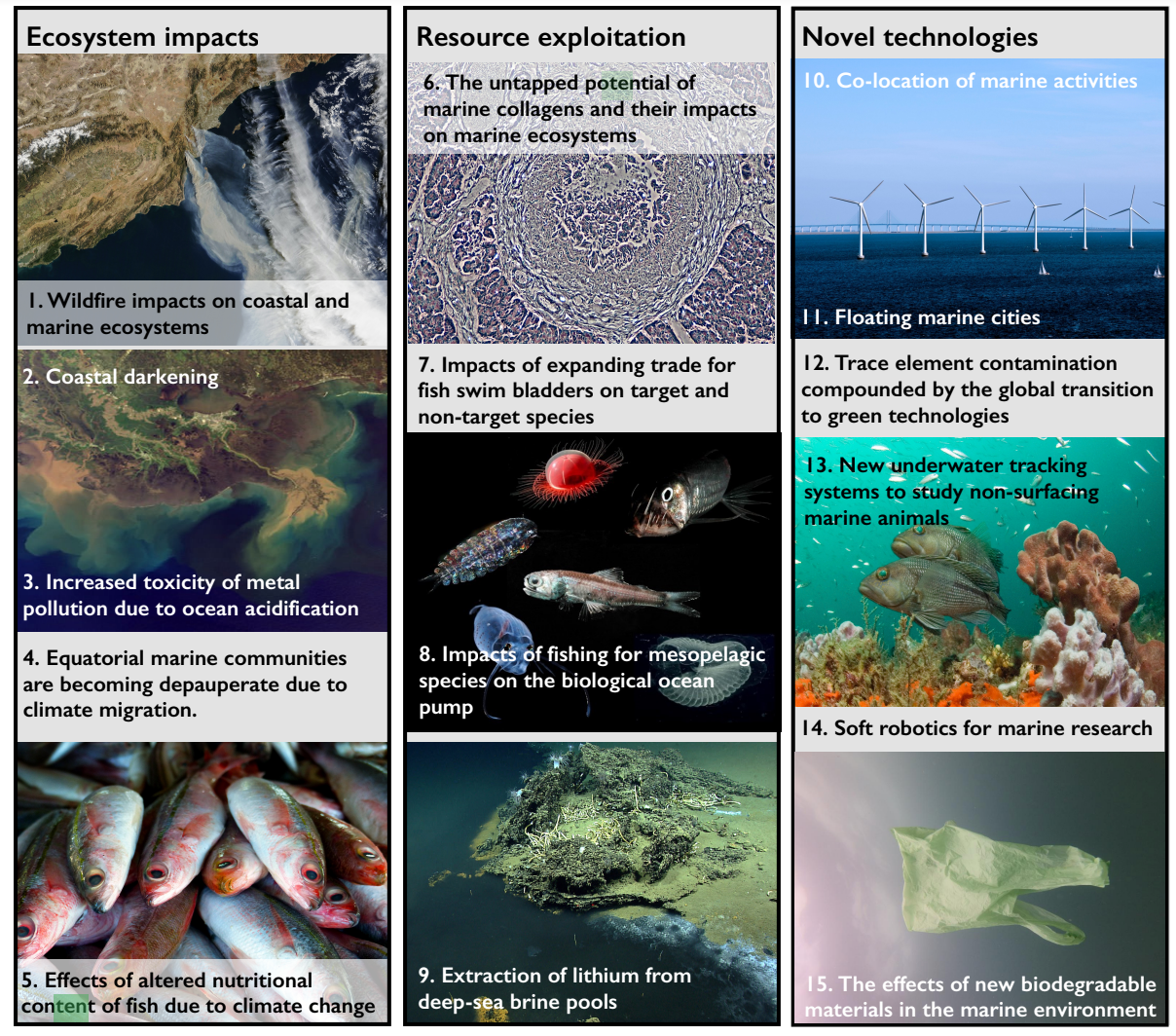Here’s what scientists fear will happen to the ocean in the next ten years
A ‘horizon scan’ has culminated in a list of 15 pressing issues from lithium extraction to floating cities
Your support helps us to tell the story
From reproductive rights to climate change to Big Tech, The Independent is on the ground when the story is developing. Whether it's investigating the financials of Elon Musk's pro-Trump PAC or producing our latest documentary, 'The A Word', which shines a light on the American women fighting for reproductive rights, we know how important it is to parse out the facts from the messaging.
At such a critical moment in US history, we need reporters on the ground. Your donation allows us to keep sending journalists to speak to both sides of the story.
The Independent is trusted by Americans across the entire political spectrum. And unlike many other quality news outlets, we choose not to lock Americans out of our reporting and analysis with paywalls. We believe quality journalism should be available to everyone, paid for by those who can afford it.
Your support makes all the difference.Floating cities, wildfires, overfishing and lithium extraction for electric cars: these issues have made a shortlist of concerns from leading marine experts on impacts facing the global ocean in the next ten years.
The “horizon scanning”, conducted by an international team of scientists and policymakers, has culminated in 15 issues facing the deep sea, and coastlines. It involved 30 experts in marine and coastal systems from 11 countries in the global north and south. The results were published today in the journal Nature Ecology and Evolution.
“Marine and coastal ecosystems face a wide range of emerging issues that are poorly recognised or understood, each having the potential to impact biodiversity,” wrote Dr James Herbert-Read from University of Cambridge’s Department of Zoology, joint first author of the paper.
“By highlighting future issues, we’re pointing to where changes must be made today - both in monitoring and policy – to protect our marine and coastal environments.”
This type of study has been used by Cambridge’s Department of Zoology in the past. For example, a 2009 “horizon scan” raised the alarm on microplastics, which have since become a pervasive ocean problem.
Some of the issues related to exploitation of the ocean’s natural resources, including for green tech like electric vehicles (EVs).
The team predicted increased extraction from deep sea “brine pools” -- unique, diverse marine environments - which also have high concentrations of salts containing lithium, the key component of EV batteries.
While overfishing is an ongoing problem, the horizon scan looked to what might happen next. The authors predicted that there may soon be a shift to fishing in the ocean’s mesopelagic zone (a depth of 200-1000 metres). In these deeper waters, fish are not fit to be eaten by people but can be sold as food to fish farms.

“Curbing this would not only stop overexploitation of these fish stocks, but reduce the disruption of carbon cycling in the ocean - because these species are an ocean pump that removes carbon from our atmosphere,” said Dr Ann Thornton from Cambridge’s Department of Zoology, fellow joint first author.
The scientists and policymakers also believe that wildfires, happening in many coastal regions with unprecedented scale and duration, pose a significant risk.
Along with threatening communities and pumping vast quantities of emissions in the already-overheated atmosphere, fires release aerosols, particles, large volumes of materials containing soluble forms of nutrients, and trace metals.
Winds and rains can subsequently transport these materials over long distances to the ocean. “Australian wildfires, for example, triggered widespread phytoplankton blooms in the Southern Ocean along with fish and invertebrate kills in estuaries,” the study notes.
Also of concern are the effects of new biodegradable materials on the ocean, some of which are more toxic to marine species that traditional plastics.
Dr Herbert-Read said: “Governments are making a push for the use of biodegradable materials - but we don’t know what impacts these materials may have on ocean life.”
For instance, it’s unknown what are the long-term ocean impacts of biodegradable polymers in clothing and by-products, like microfibres. “However, some natural microfibres have greater toxicity than plastic microfibres when consumed by aquatic invertebrates,” the researchers wrote.
Also on the list is “floating marine cities” - a concept being discussed by the United Nations on how to deal with the impacts of climate change and a lack of housing for a growing global population.
The team noted that oceanic locations provide benefits from wave and tidal renewable energy and food production supported by hydroponic agriculture.
But they also noted that while floating cities “could act as stepping-stones, facilitating species movement in response to climate change, this could also increase the spread of invasive species”.
The ocean has absorbed more than 90 per cent of the excess heat trapped in the atmosphere, largely caused by emissions from humanity’s burning of fossil fuels. Hotter temperatures will likely spur an “empty” zone at the equator as species move away from the warming region.
As the climate crisis further raises ocean temperatures, the nutritional content of fish will also take a hit, impacting other marine species and human diets.
It’s mostly cold-water dish which are packed with essential fatty acids, so as warm waters, the production of these molecules declines, the researchers noted.
Some of the impacts over the next five to ten years will be positive, the team believes. For example tech innovations in soft robotics, and improved underwater tracking systems, means that scientists will be able to gather more information about species and their movements.

Join our commenting forum
Join thought-provoking conversations, follow other Independent readers and see their replies
Comments